View All On-Demand CEU Courses
Scroll down this page to view all available course titles, descriptions, and content in our asynchronous course library. Take these on your own time – no due dates or time limits to complete!
Our Asynchronous Course Offerings
Online CE Credits provides high-quality online CEUs for counselors, therapists, social workers, and psychologists.
Access on-demand CE courses and completion certificates 24/7 from the convenience of home!

“Reefer Renaissance”: Marijuana Use & PTSD – Implications for Treatment
Instructor: Jennifer Sweeton, PsyD, MS, MA
Attitudes about marijuana are shifting, and we are seeing increasing rates of legal consumption for both recreational and health reasons. Recent widespread use of marijuana has many clinicians wondering "how does daily marijuana use impact PTSD and our ability to treat it?" Dr. Jennifer Sweeton will discuss marijuana's effect on the brain and its overall impact on the effectiveness of therapy!
Media Type : 
CEs: 1.75 CE Credit(s)

“Everyone Does It” – Skillfully Manage the Ethical Minefields of Countertransference
Instructor: Allison Broennimann, PhD
You heard it a lot in grad school - countertransference. Sounds dry and clinical, but it's a process that happens to all therapists. It's at the root of most ethical violations that result in board complaints from clients. Learn to manage it smoothly and use it to propel your therapy outcomes and personal growth!
Media Type : 
CEs: 3 CE Credit(s)

“Out of It”: Trauma-Related Dissociation & Powerful Tools to Promote Reconnection
Instructor: Kathy Steele, MN, CS
Many trauma courses touch on dissociation as a symptom, but very few trainings dive into dissociation as its own phenomenon, exploring its common presentations, various drivers, and targeted interventions. Dissociation is mysterious and can be intimidating to work with, but it doesn't have to be with the right training and practice!
Media Type : 
CEs: 5.75 CE Credit(s)
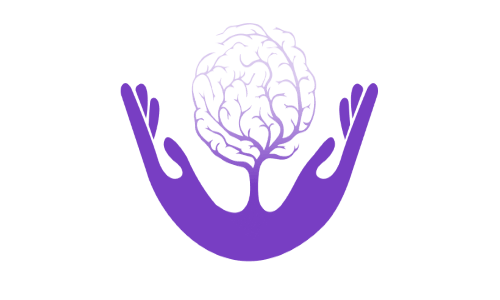
ACT Advanced Strategies to Increase Psychological Flexibility: Case Conceptualizations
Instructor: Daniel J. Moran, Ph.D., BCBA-D
ACT is becoming an increasingly popular therapy approach for its relative versatility and rich toolset, which can be applied alongside virtually any therapeutic orientation. ACT helps place the power of healing back into the client's own strengths and natural ability to overcome adversity. Learn to apply advanced ACT skills amid case studies to help reduce psychological inflexibility.
Media Type : 
CEs: 5.75 CE Credit(s)
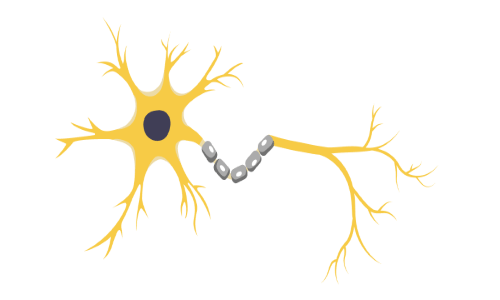
ACT for Trauma & PTSD: Integrative Neuroscience-Informed Applications
Instructor: Emily Wharton, PsyD
More recent research is exploring Acceptance & Commitment Therapy (ACT) as an effective approach alongside exposure-based strategies in the treatment of trauma & PTSD. Join Stanford psychologist Dr. Emily Wharton as she teaches you intuitive ACT skills you can use to drive better therapeutic engagement, compliance, and lasting trauma recovery!
Media Type : 
CEs: 5.75 CE Credit(s)

ACT in Exploration & Application: Uncloaking the 6 Tenets of Complete Healing
Instructor: Daniel J. Moran, Ph.D., BCBA-D
ACT is often perceived as having a large gap between its theory and application to practice. Psychologist Dr. Daniel J. Moran, a 25 year ACT veteran and worldwide trainer, will bridge this gap seamlessly through application of its 6 core tenets to DSM 5 disorders, case studies, and applications to real-world client resistance and avoidance patterns. Walk away with concrete tools you can actually use in therapy!
Media Type : 
CEs: 5.75 CE Credit(s)
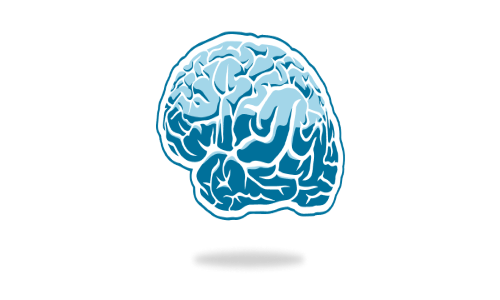
Addiction in the Brain
Instructor: Jennifer Sweeton, PsyD, MS, MA
This short course describes the "addiction hub" of the brain, the nucleus accumbens. An explanation of this brain region, and how it contributes to the development and maintenance of addiction, is provided.
Media Type : 
CEs: 1 CE Credit(s)

Addiction, Trauma, & the Family: Treatment Tools for Change
Instructor: Jennifer Sweeton, PsyD, MS, MA
We'll journey into family systems and dynamics to examine how we best support individuals struggling with addiction in a way that will promote long term recovery and family healing.
Media Type : 
CEs: 5.25 CE Credit(s)

Addictions and Attachment: Connection as a Path To Healing
Instructor: Robert Cox, LPC
We'll explore the link between trauma, attachment, and addictions including how trauma and damage to attachment patterns play out. We'll discuss how to move to recovery and examine the role shame plays . Treatment modalities, methods for addiction assessment, and comorbidities are also covered.
Media Type : 
CEs: 4.25 CE Credit(s)

Addressing Addiction in a Disconnected World: Practical Tools & Techniques
Instructor: Megan Salar, MSW, ACADC
Addiction is now part of the daily conversation. Some, already predisposed to addiction, now find themselves isolated more frequently for various reasons. Whether it be the "work from home" economy, our social word being more virtual than real, or the fallout from our recent global pandemic. Learn techniques to move clients through the stages of change, prevent relapse, and engage the most difficult-to-reach addicted clients.
Media Type : 
CEs: 4.75 CE Credit(s)

ADHD: Evidence-Informed Treatment Approaches for Adults & Children
Instructor: David Nowell, Ph.D.
Learn to apply leading edge research to your own clinical practice in treating clients with attentional issues. Gain concrete skills including assessment of processing and organizational deficits and cognitive behavioral treatment strategies.
Media Type : 
CEs: 6.25 CE Credit(s)
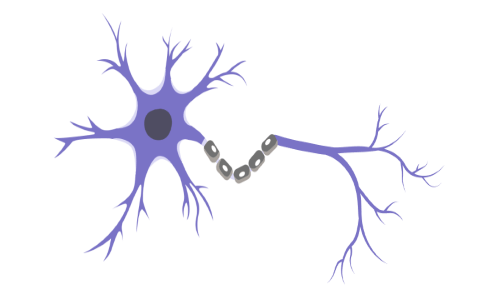
Advanced EMDR Skills for Complex Trauma
Instructor: Jennifer Sweeton, PsyD, MS, MA
This course builds on basic skill-building EMDR courses, teaching clinicians how to work with complex trauma utilizing EMDR. We recommend taking "EMDR Skills for Trauma Treatment" first.
Media Type : 
CEs: 6 CE Credit(s)

Anxiety’s Kryptonite: Help Clients Calm With Solution-Focused Therapy
Instructor: Jodi Ann Geis-Crowder, MS, LPC, ACS
Anxiety is endemic, and some clients even pull on us to help them "cure" this anxiety completely. How do we handle this? Learn to use solution-focused brief therapy (SFBT) integrated with mindfulness skills and techniques to help clients accept anxiety as normal and effectively solution-manage their symptoms.
Media Type : 
CEs: 2.5 CE Credit(s)

At the Intersections: Suicide Prevention for BIPOC & 2SLGBTQIA+ Youth
Instructor: Crystal Rozelle–Bennett, LMSW
Suicide remains a leading cause of death in the United States - some minority groups facing up to 3x as much risk. Unique stressors, cultural factors, and age make minority youths exceptionally vulnerable to suicide. Learn specific techniques to evaluate, treat, and prevent minority youth suicide.
Media Type : 
CEs: 2.5 CE Credit(s)

Autism Treatment From a Trauma Perspective
Instructor: Robert Cox, LPC
We'll dive deep into autism and its diagnosis and treatment, including case studies from speaker Robert Cox's own history with the disorder. Assessment, treatment modalities (including play therapy), and methods for improving outcomes will also be covered.
Media Type : 
CEs: 4.5 CE Credit(s)

Beyond the Bud: Ethics of Treating Frequent Users of Legal Marijuana
Instructor: Jodi Ann Geis-Crowder, MS, LPC, ACS
Marijuana was once considered the "devil's herb," with criminalization and heavy social judgment of users the norm. The landscape has flipped - decriminalization, sentence commutation, and public acceptance giving way to legalization and common medicinal and recreational use. Get ethics credit and learn how to effectively manage the clash between a client's legal use of marijuana and its potential contributions to client distress.
Media Type : 
CEs: 2 CE Credit(s)
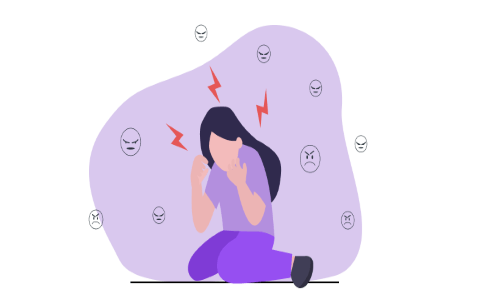
Borderline Personality Disorder: Breakthrough Tools for the “Untreatable”
Instructor: Jeff Riggenbach, Ph.D.
A DBT-adherent approach isn't always what the doctor ordered. Join personality disorder expert and trainer Dr. Jeff Riggenbach as he teaches a rock-solid integrative approach to help the "untreatable" clients with the strongest of BPD features. Dive deep into the diagnosis, learn to navigate it with confidence, and treat it with results!
Media Type : 
CEs: 5.75 CE Credit(s)

Brain-Based Trauma Treatment
Instructor: Jennifer Sweeton, PsyD, MS, MA
Neuroscience research is providing insight into why, when, and with whom specific psychotherapeutic approaches may be beneficial. However, translating neuroscience research into practice can be a daunting task.
Media Type : 
CEs: 5.5 CE Credit(s)

Childhood Bullying and Its Impacts on Sleep Health
Instructor: Jerrod Brown, PhD, MA, MS, MS, MS
We'll examine various bullying behaviors along with their implications on sleep health. Learn the neurobiopsychosocial factors associated with bullying and their impact on sleep quality. Also covered: internalization and externalizing behavioral problems, attachment-rejection-self esteem issues, emotion dysregulation, etc.
Media Type : 
CEs: 1.25 CE Credit(s)

Clients Numbed to & Disconnected from Feelings: Treatment Strategies & Considerations
Instructor: Jerrod Brown, PhD, MA, MS, MS, MS
Learn about clients with Alexithymia (i.e. difficulty identifying, describing, and experiencing emotion), what other conditions it may be linked to, and how to screen for and treat this unique presentation. We'll cover screening, intervention, and delve into case studies and research findings.
Media Type : 
CEs: 1.75 CE Credit(s)

Clients Who Lie Honestly: Treatment Strategies & Special Considerations
Instructor: Jerrod Brown, PhD, MA, MS, MS, MS
Learn about the interesting phenomenon of confabulation and how it presents in mental health settings. We'll thoroughly define confabulation and its consequences in treatment, cover risk factors for this challenging presentation and implications for assessment and treatment.
Media Type : 
CEs: 1.75 CE Credit(s)
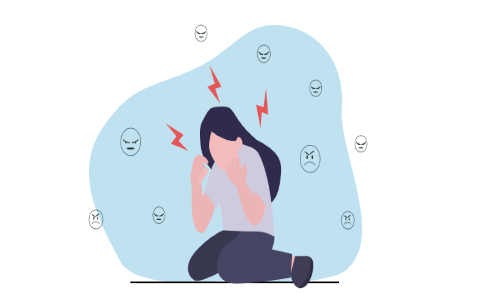
Clinical Strategies For Treating Clients With Distressing Obsessive Thoughts
Instructor: Jennifer Sweeton, PsyD, MS, MA
We'll explore client presentations of negative intrusive thinking in the context of anxiety treatment. Learn common DSM-5 disorders where extreme obsessive thinking is a hallmark feature as well as 3 strategies to assist clients in managing their extreme obsessions.
Media Type : 
CEs: 2.5 CE Credit(s)

Clinical Strategies to Handle Those Difficult People Who Become Our Clients
Instructor: Jeff Riggenbach, Ph.D.
Join international speaker and personality disorder expert Dr. Jeff Riggenbach to explore clinical strategies you NEED for those most difficult clients. You know, the ones that argue, avoid, know more than you do, don't trust anyone, make threats, blow up in therapy, and ultimately make you want pull your hair out!
Media Type : 
CEs: 5.5 CE Credit(s)

Clinically Interviewing Trauma Clients Without Retraumatization
Instructor: Jerrod Brown, PhD, MA, MS, MS, MS
Enhance your clinical interviewing skills through a trauma-informed framework. We'll examine the core principles of trauma-informed care and trauma-informed interviewing practices to vastly improve your information-gathering without retraumatizing clients.
Media Type : 
CEs: 1.75 CE Credit(s)

Closing the Gap: Cultivating a Racially Equitable Mental Health Practice
Instructor: Amittia Parker, LMSW, MPA
Increase awareness of racism within mental health, build skills for managing emotions on race, and act intentionally for racial equity and justice. We'll invite participants to explore their own mental health practice while reflecting and discussing race and equity in mental health services.
Media Type : 
CEs: 2.5 CE Credit(s)

Cognitive Processing Therapy: Learn it Step-By-Step!
Instructor: Jennifer Sweeton, PsyD, MS, MA
This exclusive didactic training, taught by a Stanford neuroscientist and clinical psychologist, takes you on a deep dive into all 12 sessions of CPT. Learn CPT from A-Z, long considered the "gold standard" evidence-based treatment for psychological trauma.
Media Type : 
CEs: 10.75 CE Credit(s)

Cognitive Therapy Techniques for Trauma, PTSD, & Co-Occurring Addiction
Instructor: Jeff Riggenbach, Ph.D.
People with unresolved trauma and emotional wounds often turn to substances as a way to self-medicate; And, people with addictions may drive while impaired, gravitate towards toxic relationships, or generally engage in behaviors that increase their risk of being traumatized. Learn straightforward and effective cognitive strategies you can use in practice tomorrow to help these clients reclaim adaptive life control.
Media Type : 
CEs: 2.75 CE Credit(s)

Compassion Fatigue and Burnout: Ethics, Prevention and Resiliency
Instructor: Eric Gentry, Ph.D.
Learn powerful tools critical for professional resiliency and integrate them into your practice now. Learn techniques built from the latest research and practice to reclaim the satisfaction, hope and inspiration of professional care giving AND practice ethically.
Media Type : 
CEs: 4 CE Credit(s)

Complex Trauma: Screening, Treatment Considerations, & Common Concerns
Instructor: Jerrod Brown, PhD, MA, MS, MS, MS
Get up-to-date on your research knowledge around the development of complex trauma and its effects on mental health. Learn the impacts of complex trauma on the family system, how to screen for CT, common resulting disorders, and treatment considerations.
Media Type : 
CEs: 1.75 CE Credit(s)

Conspiracy Theories & Political Radicalization: Clinical Considerations
Instructor: Corey Petersen, PhD, LCMFT
Learn how to counsel clients to effectively manage the self and relationships around the sensitive topic of conspiracy theories and political radicalization.
Media Type : 
CEs: 2.75 CE Credit(s)

Cosmetic Psychotherapy: Ethical Considerations – “Is It Therapy, Just Because?”
Instructor: Corey Petersen, PhD, LCMFT
Yes, in today's world, there are people who seek therapy who aren't mentally distressed. But why, and is it ok? With decreasing therapy stigma, having a therapist is even viewed by some as a luxury. How does this phenomenon impact how we approach treatment? What are the ethical implications? Strap in for this intriguing seminar on "Cosmetic Psychotherapy!"
Media Type : 
CEs: 3 CE Credit(s)

Couples Therapy: Effective Clinical Techniques for Culturally Diverse Clients
Instructor: Katherine Helm, PhD
Most couples therapy approaches, now ages old, weren't developed with our LGBTQIA+, racially diverse, and culturally diverse couples in mind. Many couples in need don't fit the heteronormative "traditional" mold - this is a problem! Learn to effectively adapt existing approaches to treat LGBTQIA+, interracial/intercultural, and couples of color.
Media Type : 
CEs: 2 CE Credit(s)

COVID-19 & Sleep Disturbances: A Review for Mental Health Clinicians
Instructor: Jerrod Brown, PhD, MA, MS, MS, MS
The COVID-19 pandemic brings increasing reports of sleep-related disturbances (e.g., insomnia, night terrors). We'll identify possible causes and associated consequences of these sleep disturbances, review screening and intervention, and highlight case studies and professional observations.
Media Type : 
CEs: 1.25 CE Credit(s)

Creative Techniques for Clinical Supervision
Instructor: Ragan Snyder-Smith, LSCSW, RPT-S
This training will discuss how to enhance supervision to make it creative, exciting and intentional while building clinical skills for your supervisee. Learn interventions to use immediately in group and individual supervision to foster clinical skills and personal growth.
Media Type : 
CEs: 2.25 CE Credit(s)

Criminal Offenders & Adverse Childhood Experiences – Complex Trauma Screening & Interventions
Instructor: Jerrod Brown, PhD, MA, MS, MS, MS
The CDC-Kaiser ACEs study of the mid-90's was one of the largest studies ever conducted to measure the prevalence and make-up of childhood abuse and neglect. The core of the study - the effect of early childhood abuse - informs virtually EVERY aspect of modern trauma treatment. These early experiences are also a significant contributing factor to criminal offending behavior, a problem of epidemic proportion that deserves our clinical time and attention.
Media Type : 
CEs: 3 CE Credit(s)

Criminal Offenders & Executive Functioning: Profiles, Screening & Interventions
Instructor: Jerrod Brown, PhD, MA, MS, MS, MS
Modern research supports interesting but troubling links between deficits in the prefrontal cortex (i.e. executive dysfunction) and criminal behavior in some vulnerable populations. Learn what causes worst case scenarios for some of the most vulnerable clients you'll see.
Media Type : 
CEs: 2.5 CE Credit(s)

Criminal Offenders: Early Childhood Indicators, Screening, and Interventions
Instructor: Jerrod Brown, PhD, MA, MS, MS, MS
What early factors cause a person to engage in criminal behavior? Learn the current research, psychological risk factors and environmental conditions that drive human criminality. Come away with screening and intervention tools to break patterns and improve outcomes.
Media Type : 
CEs: 3 CE Credit(s)
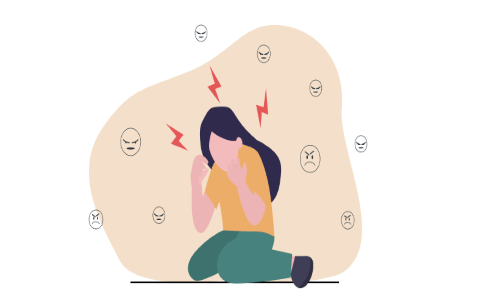
Criminal Offenders: Impulse Control & Conduct Disorder Profiles, Screening, & Interventions
Instructor: Jerrod Brown, PhD, MA, MS, MS, MS
Help prevent the next criminal act! Learn how agressive and defiant behaviors, anti-social personality traits, impulsivity, and other self-control problems contribute to criminal offending behavior. Dr. Brown will also cover applied research and how to screen and provide effective interventions for clients showing these traits and associated destructive behaviors.
Media Type : 
CEs: 3 CE Credit(s)

Criminal Offending & Deficits in Social Cognition, Empathy, & Theory of Mind
Instructor: Jerrod Brown, PhD, MA, MS, MS, MS
Did you know that those who exhibit criminal offending behaviors are shown to have disproportionately inadequate social functioning? This makes both nature and nurture so important in the upbringing of a human being. Learn how lack of successful social development contributes to the capacity to commit crimes later in life.
Media Type : 
CEs: 3 CE Credit(s)

Cult Influence & Thought Radicalization in Clients – Practical Clinical Strategies
Instructor: Corey Petersen, PhD, LCMFT
Help clients better manage the self and relationships around controversial conspiracy theories and modern political radicalization. We'll cover the behavioral dynamics around cult influence and thought radicalization in the context of interpersonal relationships.
Media Type : 
CEs: 5.5 CE Credit(s)

Dangerous Shortcuts – Ethics of Artificial Intelligence & Bots in Therapy
Instructor: Jodi Ann Geis-Crowder, MS, LPC, ACS
Artificial intelligence can be a useful tool when used or deployed within certain boundaries (just like therapy!). But lately, AI has become....well, TOO intelligent. AI's increasing capability has led to its expanding use in the mental healthcare space in the form of phone systems, bots, and chat engines that are beginning to assume roles that most argue are best assumed by a trained human provider. The struggle between increasing access to quality care while maintaining a well-regulated, safe, and ethical mental healthcare system is becoming more complex than we ever could have imagined!
Media Type : 
CEs: 2.5 CE Credit(s)

DBT Tools to Help Stubbornly Resistant and Reactive Clients
Instructor: Kimberly Duris, EdD, LCPC
Don't fear the "impossible" ones! Learn specific DBT skills and helpful interventions to REALLY make progress with reactive and resistant clients who can't help but repetitively engage in interference and sabotage of their own treatment progress.
Media Type : 
CEs: 2.5 CE Credit(s)

DBT-Informed Techniques for Treating Bipolar Disorder
Instructor: Sheri Van Dijk, MSW, RSW
Learn the diagnostic categories of Bipolar Disorder, and its causes, as well as typical comorbidities that may complicate treatment. We'll cover some common therapeutic approaches before delving into DBT skills most efficacious in treating BD.
Media Type : 
CEs: 4.75 CE Credit(s)

Death by a Thousand Nicks: Healing the Wounds of Racial Trauma
Instructor: Crystal Rozelle–Bennett, LMSW
This workshop will utilize the ACE's studies to discuss how racial trauma impacts the physical, social, and psychological health of individuals and communities. Participants will recognize systemic oppression, confront implicit bias and engage in dialogue around racial healing.
Media Type : 
CEs: 5 CE Credit(s)

Diagnosing PTSD and Other Trauma or Stressor-Related Disorders
Instructor: Jennifer Sweeton, PsyD, MS, MA
This 2.75-CE seminar focuses on common diagnosis pitfalls and challenges, and helps clinicians accurately diagnose these disorders for clinical or forensic purposes.
Media Type : 
CEs: 2.75 CE Credit(s)

Diagnosis & Treatment of Body-Focused Repetitive Behaviors
Instructor: Amanda Petrik-Gardner, LCPC
BFRB disorders include hair pulling, skin picking, and nail biting, among others. We'll explore accepted treatments including Habit Reversal Training and the Comprehensive Behavioral Model.
Media Type : 
CEs: 5.75 CE Credit(s)

Diagnosis and Treatment of Anxiety Disorders
Instructor: Amanda Petrik-Gardner, LCPC
We'll explore Anxiety Disorders from the DSM-5, disorder presentation, and recommended treatment techniques. Utilizing CBT, participants will learn cognitive techniques to address anxious thinking as well as behavioral techniques to improve functioning.
Media Type : 
CEs: 5.25 CE Credit(s)

Driver Aggression & Road Rage: Causes and Clinical Interventions
Instructor: Jerrod Brown, PhD, MA, MS, MS, MS
We've all been cut off in traffic or caught behind a slow driver. Why do we feel "rage" when this happens? How can we help ourselves and our clients manage driving rage or aggression? As more people take the to the roadways post-pandemic amidst stressful times, road rage is at an all-time high.
Media Type : 
CEs: 1.75 CE Credit(s)

Dulling a Double-Edge Sword: Strategies to Manage Kids’ Screen Time
Instructor: Dawn Friedman, MSEd, LPCC-S
Technology is now tethered by no wires, but connected to everything and everyone. Temptation, distraction, and mindless entertainment just a finger swipe away. Unchecked, our brains dependent on small dopamine hits social media feeds and gaming apps provide 24/7. Learn the impacts of excessive screen time & skills for parents to successfully manage it at home.
Media Type : 
CEs: 2.5 CE Credit(s)

Early Trauma, Attachment, and Repair
Instructor: Robert Cox, LPC
This course covers how trauma affects brain development, associated early attachment and attunement issues, and brain plasticity's role in healing psychological trauma.
Media Type : 
CEs: 5.5 CE Credit(s)
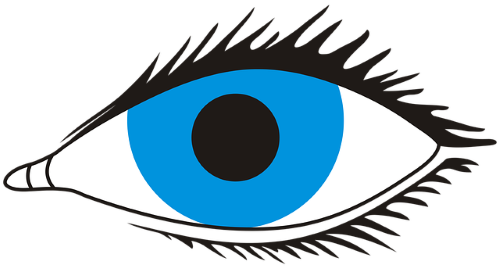
EMDR for Addictive Disorders: Urge Reduction & Trigger Desensitization
Instructor: Megan Salar, MSW, ACADC
At the core of most addictive disorders is trauma. So, how do we use more targeted EMDR techniques to address addictive tendencies? There is an answer! It's called the DeTUR model which is used to reduce urges and target and desensitize those pesky triggers of addictive behavior. Get targeted skills you can integrate with classic EMDR immediately.
Media Type : 
CEs: 5.25 CE Credit(s)

EMDR for Anxiety: Basic EMDR Skills and Anxiety Modifications
Instructor: Jennifer Sweeton, PsyD, MS, MA
This course introduces participants to the original 8-phase model of EMDR and provides instructions for how to utilize EMDR skills to treat generalized anxiety, phobias, and panic.
Media Type : 
CEs: 9.75 CE Credit(s)
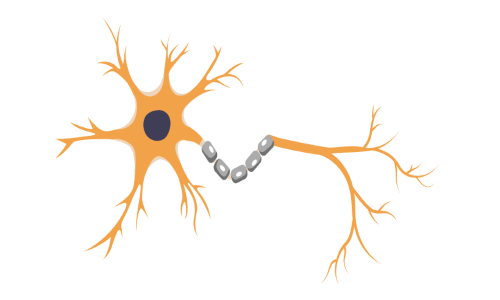
EMDR Skills for Trauma Treatment
Instructor: Jennifer Sweeton, PsyD, MS, MA
This affordable 2-day course introduces attendees to the original 8-phase model of EMDR and teaches participants how to conduct each of the eight phases.
Media Type : 
CEs: 8.75 CE Credit(s)

EMDR Skills: Practical Modifications for Children & Other Populations
Instructor: Jennifer Sweeton, PsyD, MS, MA
Learn EMDR techniques for children you can begin using in your practice today. Dr. Jennifer Sweeton will teach clinicians to help children desensitize to and process distressing memories in a gentle, titrated manner that prioritizes resourcing.
Media Type : 
CEs: 2.5 CE Credit(s)

Empowered Recovery: Motivational Interviewing Skills for Substance Abuse
Instructor: Kimberly Duris, EdD, LCPC
Substance use and addiction are among the hardest to treat. Why? It's all about readiness and motivation to change behavior. This is the part addicts really struggle with - MI is your answer! Learn all the classic MI skills and how to effectively apply them in your substance abuse treatment with clients at all various stages of change.
Media Type : 
CEs: 2 CE Credit(s)

Enhancing Core Competencies for Suicide Prevention
Instructor: Crystal Rozelle–Bennett, LMSW
Every 40 seconds, one person dies by suicide. Using the Core Competencies for Suicide Risk Assessment and Management (SPRC, 2006), this training is designed to foster competence and confidence necessary for professionals to perform suicide assessment and management to prevent suicide.
Media Type : 
CEs: 3.75 CE Credit(s)

Epigenetics & the Mind Brain Gene Connection: A Systems Approach to Mental Health
Instructor: John Arden, PhD, ABPP
Clinical theories and methods come and go in and out of vogue, but what are the REAL, core drivers of mental health? Learn to understand the status of our mental health as a function of our environment, experiences within that environment, and their interactions on our metabolism, immune system, genes, and brain dynamics to begin treating clients from a 21st century systems perspective!
Media Type : 
CEs: 5.75 CE Credit(s)

Erotic Self-Expansion for Sexual Trauma Survivors
Instructor: Rafaella Smith-Fiallo, LCSW
Many standard approaches to sexual trauma treatment largely neglect substantial focus on repairing connection to desire and sexual embodiment as a part of the journey to overall wellness. Help your clients find what may be missing with the erotic self-expansion model.
Media Type : 
CEs: 2.5 CE Credit(s)

Essentials of Anti-Racist Mental Health Practice
Instructor: Taryn Hodison, MA, LPC
We'll define the ways in which racism and specifically anti-Blackness functions within mental health systems. Additionally, this training will outline the unique needs of Black survivors of sexual trauma and discuss implementing healing strategies that utilize liberation and resistance.
Media Type : 
CEs: 6 CE Credit(s)

Ethical and Legal Issues in Mental Health Treatment
Instructor: Jodi Ann Geis-Crowder, MS, LPC, ACS
Learn the importance of ethics in working with therapy clients. We'll cover ethics vs. the law, challenges that arise when ethics and law collide, and how to respond to subpoenas and prepare for court testimony. Come away with a practical decision-making model to use in work with clients.
Media Type : 
CEs: 3 CE Credit(s)

Ethical Considerations: Addressing & Preventing Microaggressions in Therapy
Instructor: Crystal Rozelle–Bennett, LMSW
Microaggressions are subtle or unintentional acts of discrimination that can be hard to spot or avoid perpetrating ourselves, especially if we have a majority identity. Learn how to spot them, address them, and prevent them in therapy!
Media Type : 
CEs: 3 CE Credit(s)

Ethical Practice in the Delivery of Telehealth Clinical Supervision
Instructor: Jodi Ann Geis-Crowder, MS, LPC, ACS
3 CE's for ethics and supervision! Increase your knowledge around ethical practice in telehealth clinical supervision. This self-paced webinar will boost your knowledge of telehealth clinical supervision as well as decrease your liability when working in this model.
Media Type : 
CEs: 3 CE Credit(s)

Ethics & Boundaries – Avoiding Pitfalls & Preserving the Alliance!
Instructor: Jodi Ann Geis-Crowder, MS, LPC, ACS
Boundaries in therapy are icky, uncomfortable, and awkward! But, they are important and need practice. Learn culturally appropriate ways to set boundaries in challenging therapy situations. Get a checklist to use at intake and updated case examples of common modern ethical dilemmas!
Media Type : 
CEs: 3 CE Credit(s)

Ethics and Liability in Supervision: Avoid Lawsuits and Board Complaints!
Instructor: Jodi Ann Geis-Crowder, MS, LPC, ACS
Gain knowledge in the area of ethics and potential liability when providing clinical supervision in the behavioral health care industry. Increase your effectiveness, decrease your liability and avoid lawsuits and board complaints!
Media Type : 
CEs: 3 CE Credit(s)

Ethics Around Client Attraction and Romantic Relationships in Therapy
Instructor: Jodi Ann Geis-Crowder, MS, LPC, ACS
Ever had a client flirt with you? Ever found yourself attracted to a client? It happens, it's common, and there are specific ways to manage these normal emotional processes. Almost every ethical code specifically PROHIBITS romantic relationships with clients (i.e. acting on these feelings) - don't become a statistic, but manage it with success!
Media Type : 
CEs: 3 CE Credit(s)

Ethics Around Clinical Teams, Professional Relationships, & Referral Sources
Instructor: Jodi Ann Geis-Crowder, MS, LPC, ACS
Learn important ethical considerations around professional relationships, clinical care teams, and referral sources. Some clinicians unknowingly violate ethical principals within these relationships and put their client's welfare and even their own professional licenses at risk.
Media Type : 
CEs: 3 CE Credit(s)

Ethics Deep Dive – Avoid Easy Traps That Bring Board Complaints/Lawsuits!
Instructor: Jodi Ann Geis-Crowder, MS, LPC, ACS
Take a deep dive into the most interesting cases of clinical ethics violations. Use this knowledge and teaching to build an updated ethical decision-making model that can help protect your license while navigating the most difficult ethical dilemmas in practice.
Media Type : 
CEs: 3 CE Credit(s)

Ethics of Managing Collaterals and Interested Parties in Therapy
Instructor: Jodi Ann Geis-Crowder, MS, LPC, ACS
No matter your treatment setting or population, you will have clients that require you interface with collaterals and interested third parties (e.g. family members, school officials, external payers, officers of the court). Learn to navigate these waters with confidence and expertise while avoiding costly fumbles!.
Media Type : 
CEs: 3 CE Credit(s)

Ethics: Bully Proof – Empower Clients to Handle Difficult People!
Instructor: Kate Cohen-Posey, LMHC, LMFT
Do your clients experience hostile verbiage, and do you give them "speak up or ignore it" advice? You'll learn why these approaches can perpetuate attack-defend or pursue-distance cycles. We'll demonstrate four verbal strategies that disarm random attacks and the backlash from being assertive.
Media Type : 
CEs: 2 CE Credit(s)

Ethics: Pitfalls and Dangers Around Scope of Practice in Mental Health
Instructor: Dawn Friedman, MSEd, LPCC-S
We all hear "scope of practice" but what does it really mean and why is it important?? Even if you're a veteran therapist, without proper ethics refreshers, you run the risk of becoming blind to the various pitfalls and dangers inherent in the clinical mental health field. Ethics help protect clients and YOUR livelihood!
Media Type : 
CEs: 3 CE Credit(s)

Exposure and Response Prevention Therapy for OCD: Step-By-Step
Instructor: Amanda Petrik-Gardner, LCPC
We'll cover identifying and diagnosing OCD, while recognizing common themes like Harm OCD, Sexual Orientation OCD, Religious/Scrupulosity OCD, Existential OCD, Relationship OCD, and more. Learn the evidence-based treatment, Exposure and Response Prevention (ERP)!
Media Type : 
CEs: 11 CE Credit(s)

Eye Movements and Eye Placements in Psychotherapy: Fast Tools for Desensitization
Instructor: Jennifer Sweeton, PsyD, MS, MA
Learn several practical, eye-based desensitization and processing skills used in trauma treatment that can immediately be integrated with almost any psychotherapy approach!
Media Type : 
CEs: 3 CE Credit(s)

Family Killers: Patterns, Profiles, Risk Factors, & Consequences
Instructor: Jerrod Brown, PhD, MA, MS, MS, MS
Ever wondered how the "family killer" psychological profile comes to be? Gain specialized research supported clinical knowledge around this psychological profile and learn how to spot the common patterns and risk factors in the family killer typology.
Media Type : 
CEs: 2.5 CE Credit(s)

Fetal Alcohol Spectrum Disorder: A Review for Mental Health Clinicians
Instructor: Jerrod Brown, PhD, MA, MS, MS, MS
Learn about FASD toward improving intake, screening, communication, goal and treatment planning, and discharge planning processes. We'll cover memory, ACE's, vulnerability and victimization, attachment issues, executive function, Theory of Mind, and language development.
Media Type : 
CEs: 1.5 CE Credit(s)

Forensic Mental Health Counseling: Roles, Responsibilities, & Evidence-Based Practices
Instructor: Jerrod Brown, PhD, MA, MS, MS, MS
Learn all about forensic mental health counseling and the critical role these professionals play in the delivery of critical services to some of the most vulnerable populations. Walk away with a solid set of foundational skills you can use to confidently provide care for clients who are currently interfacing with the criminal justice system.
Media Type : 
CEs: 2.75 CE Credit(s)

Foundations and Applications of Solution-Focused Brief Therapy
Instructor: Jodi Ann Geis-Crowder, MS, LPC, ACS
Learn the foundations of Solution Focused Brief Therapy (SFBT) and how to apply its fundamental skill base to individuals, families, couples, and groups. Learn the three-part SFBT skeleton, its 8 principles, "the trifecta", and how to deploy SFBT in trauma-informed client care.
Media Type : 
CEs: 5.25 CE Credit(s)

Generation Games: Ethics of Working Through a Generational Lens
Instructor: Dawn Friedman, MSEd, LPCC-S
Battle of the Generations - our favorite "us vs. them" game. Millennials and Boomers go at it, Boomers and Gen Z. If you've been to Grandma's for Thanksgiving dinner, you've seen the feuds play out on the family stage. How do generational differences influence the therapy process? What should you be doing to provide the best care around these dynamics?
Media Type : 
CEs: 3 CE Credit(s)

Healing the Angry Brain: Treating Angry, Aggressive, & Violent Clients
Instructor: Ronald Potter-Efron, Ph.D., CADCIII, LICSW
We'll boost your clinical toolbox with proven anger strategies for long-term change of aggressive and violent behaviors. Dr. Potter-Efron will combine neuroscience with a powerful range of anger treatment plans to change the brains and behaviors of your most challenging clients.
Media Type : 
CEs: 5 CE Credit(s)

Helping Clients Recover Sexual and Relational Health After Sexual Trauma
Instructor: Holly Richmond, PhD, LMFT
Acclaimed author and certified sex therapist Dr. Holly Richmond educates on helping clients navigate the aftermath of sexual trauma toward psychological recovery, rediscovery of self-worth, more fulfilling sex and intimate relationships, and a healthier mind/body connection.
Media Type : 
CEs: 3.25 CE Credit(s)

Hoarding: Skills-based Treatment & Assessment
Instructor: Patrick B. McGrath, Ph.D.
Learn the basics and DSM-5 criteria of hoarding, the influences of acquiring/saving and disorganization, and the value placed on items. Attention, decision-making, and executive functioning will be applied to hoarding. Treatment strategies and case examples are presented.
Media Type : 
CEs: 3 CE Credit(s)

Holiday Heartbreak – Clinical Tools to Manage Holiday Grief
Instructor: Tiffani Dilworth, LCPC, CGCS
Holiday Grief is especially crippling for many clients highly triggered around this time. Our grief expert Tiffani Dilworth, LCPC will share with you some unique clinical tools and techniques to help clients both identify and successfully manage the different manifestations of Holiday Grief.
Media Type : 
CEs: 1.25 CE Credit(s)

Honest Lies – Diagnosing Eating Disorders for Mental Health Professionals
Instructor: Jenny Helms, LMFT
This diagnosis seminar on eating disorders teaches clinicians how, in a structured manner, to diagnose a variety of eating disorders. This seminar also helps clinicians determine the level of care that will best benefit clients, based on several factors.
Media Type : 
CEs: 5 CE Credit(s)

How Chronic Homelessness Impacts Sleep Function
Instructor: Jerrod Brown, PhD, MA, MS, MS, MS
Learn the causes, consequences, and interventions for persons experiencing homelessness who are impacted by sleep dysfunction. Other topics: potential shelter accommodations, housing barriers, resilience, homeless children, trauma exposure, traumatic-brain injury, executive function, etc.
Media Type : 
CEs: 1.25 CE Credit(s)

How Disruptive Behavior & Attention Disorders in Children Impact Sleep
Instructor: Jerrod Brown, PhD, MA, MS, MS, MS
Increase your understanding of the causes, consequences, and interventions for sleep disturbances among children diagnosed with disruptive behavior and attention disorders. Empirically-based research findings will be presented throughout this training.
Media Type : 
CEs: 1.25 CE Credit(s)

How Excessive Screen Time Impacts Sleep
Instructor: Jerrod Brown, PhD, MA, MS, MS, MS
Learn how excessive screen time exposure effects sleep quality. We'll also examine screening and intervention as well as the impact COVID-19 and excessive home confinement has had on screen time habits and sleep disturbances. Other topics: executive dysfunction, self-regulation issues, and poor health outcomes.
Media Type : 
CEs: 1.25 CE Credit(s)

How Sleep Problems Impact Executive Functioning
Instructor: Jerrod Brown, PhD, MA, MS, MS, MS
This training is designed to increase understanding of the causes, consequences, and interventions for persons impacted by executive functioning impairments and sleep disturbances. Empirically-based research findings will be presented throughout this training.
Media Type : 
CEs: 1.25 CE Credit(s)

How Sleep Relates to Trauma and Promotes Resilience
Instructor: Jerrod Brown, PhD, MA, MS, MS, MS
We'll examine how adequate sleep promotes resilience following exposure to a traumatic event. Learn consequences associated with poor sleep and strategies/techniques that may improve overall sleep quality among trauma survivors. We'll cover implications for screening and intervention.
Media Type : 
CEs: 1.25 CE Credit(s)

How to Clinically Assess ADHD Using Both Objective & Subjective Data
Instructor: Bruce Cappo, PhD, ABPP
Learn to competently and accurately assess for ADHD in a clinical mental health setting. We'll cover a comprehensive assessment methodology that uses objective and subjective data. Additionally, learn how to recognize alternative diagnoses that mimic ADHD.
Media Type : 
CEs: 2.75 CE Credit(s)

How Traumatic Brain Injury (TBI) Impacts Sleep Health
Instructor: Jerrod Brown, PhD, MA, MS, MS, MS
Understand the causes, consequences, and interventions associated with sleep disturbances and disorders among populations with a history of TBI. Learn implications for screening, intake, and treatment and discharge planning. Empirical research findings and case examples provided.
Media Type : 
CEs: 1.25 CE Credit(s)

Human Trafficking: Looking Beyond the Surface
Instructor: Crystal Rozelle–Bennett, LMSW
This workshop will increase participants' human trafficking awareness and discuss the need for coordinated and trauma-informed services before, during, and after exploitation in order to build partnerships with survivors to connect them to resources and empower them to thrive.
Media Type : 
CEs: 5 CE Credit(s)

Individual EFT in Action: Shaping a Secure Sense of Self
Instructor: Sue Johnson, Ed.D.
Join world-famous clinician, researcher, and creator of EFT Dr. Sue Johnson as she teaches a NEW multimodal EFT approach ("EFIT") designed for use with individuals suffering from depression, anxiety, and even traumatic distress. Deploy empirically-based techniques to move individuals toward repair, growth, and a new model of self and other.
Media Type : 
CEs: 2.5 CE Credit(s)

Insight-Based Therapies in Action: Depth Work Tools to Set Up Behavior Change
Instructor: Katherine Helm, PhD
Insight therapies are well-documented as clinically effective by themselves. But, what happens when we use insight theory FIRST, and then proceed into thought and behavior change? Dr. Helm uses mock counseling sessions to demonstrate effective integration of insight therapy with your favorite action-oriented approach to achieve better long-term outcomes!
Media Type : 
CEs: 2.25 CE Credit(s)

Integrating Polyvagal Theory Into Practice: Clinical Strategies & Techniques
Instructor: Brent Moore, PhD, LPC
Learn Polyvagal theory and how to apply it to your clinical practice today! Help your most stuck or overactive clients feel safe, shift into their social engagement biology, and achieve nervous system regulation through embodiment and connection with others.
Media Type : 
CEs: 2.25 CE Credit(s)

Integrative Advanced Workshop: EMDR, Ego States, IFS
Instructor: Kate Cohen-Posey, LMHC, LMFT
Make your preferred treatment methods adaptable for individuals, couples, and children. Learn and experience brain center activations for upsetting and uplifting emotions and observe how to combine these phenomena into an easy to execute approach.
Media Type : 
CEs: 5.5 CE Credit(s)

Intro to Neurocounseling: Brain-Based Tools to Accelerate Therapy Outcomes
Instructor: Jerrod Brown, PhD, MA, MS, MS, MS
Join Dr. Jerrod Brown for an intro to Neurocounseling. He'll deliver applied research and practical, brain-based tools. Learn to bring neuroscience into therapeutic exchanges. Transform your own practice AND educate your clients to ultimately drive their own long-term healing.
Media Type : 
CEs: 2.5 CE Credit(s)

Intro to Neurocriminology: Understanding & Treating Criminal and Violent Behavior
Instructor: Jerrod Brown, PhD, MA, MS, MS, MS
What early factors cause a person to engage in criminal behavior? Learn the current research, psychological risk factors and environmental conditions that drive human criminality. Come away with screening and intervention tools to break patterns and improve outcomes.
Media Type : 
CEs: 2.5 CE Credit(s)

Introduction to Prolonged Exposure Therapy Skills: A Step-By-Step
Instructor: Jennifer Sweeton, PsyD, MS, MA
We'll introduce attendees to PE, and provide step-by-step experiential training in this exposure-based modality. Learn how to integrate exposure therapy skills to help traumatized clients! All materials, including instructions for key PE skills, are included with the course!
Media Type : 
CEs: 11 CE Credit(s)

Memory Reconsolidation Techniques and Interventions for Trauma
Instructor: Jennifer Sweeton, PsyD, MS, MA
This course provides an overview of the neuroscience of memory systems and PTSD, and the memory reconsolidation techniques that have been shown to facilitate recovery from PTSD.
Media Type : 
CEs: 3 CE Credit(s)

Modern & Effective Therapy Techniques for Clients With Disabilities
Instructor: Jessie L. Rayl, Ed.D., LPC
Helping professionals receive little targeted training to effectively treat people with disabilities. The number of people with disabilities is increasing, and many report a lack of overall support from providers. Learn actionable techniques you can use TODAY to be more competent and responsive to the needs of clients with both acquired and congenital disabilities.
Media Type : 
CEs: 2.25 CE Credit(s)

Motivational Interviewing – Tools to Engage Clients & Evoke Change
Instructor: Crystal Rozelle–Bennett, LMSW
Motivational Interviewing is an "style" of therapy that is evidence-based and effective at moving clients toward change. This workshop offers concrete MI tools through experiential learning and engaging case studies. Walk away ready to use MI with clients tomorrow!
Media Type : 
CEs: 2.5 CE Credit(s)

Must-Have EMDR Skills for Online Therapy (even if you aren’t trained in EMDR!)
Instructor: Jennifer Sweeton, PsyD, MS, MA
Learn several quick strategies for integrating EMDR and NDIT (Neural Desensitization and Integration Training) skills in your online therapy work. And, no training in EMDR or NDIT is required, as these techniques can be incorporated into any therapy approach!
Media Type : 
CEs: 1 CE Credit(s)

My Own Keeper: Therapy Tools to Break Codependency
Instructor: Leo DeBroeck, MS, LMHC, CMHS, MHP
Codependence doesn't just exist in the confines of substance addiction. This unhealthy relational state can be extremely destructive and often difficult to break. Learn how to help your clients break the pattern and reclaim healthy interdependence!
Media Type : 
CEs: 2.25 CE Credit(s)

Narcissism, Hypersexuality, and Betrayal Trauma in Relationships: Treatment Tools
Instructor: Wendy Behary, MSW, LCSW
Clients with strong narcissistic traits can default into hypersexual, detached stimulating-seeking modes where they become involved in excessive sexual preoccupation. Intimacy suffers and the offended partner becomes burdened by the trauma of betrayal. Learn what drives these relationship behaviors and how to deploy effective treatment.
Media Type : 
CEs: 5.5 CE Credit(s)

Navigating Narcissism with Courage & Empathy – Clinical Tools & Techniques
Instructor: Wendy Behary, MSW, LCSW
Narcissism-predominant clients can challenge even the most seasoned therapists. Learn from world-renowned Narcissism expert Wendy Behary how to overcome obstacles, command courage, and empathically hold narcissistic clients accountable toward healthy change.
Media Type : 
CEs: 5.75 CE Credit(s)

NDIT Module 1 Deep Dive: Skills to Activate Mirror Neurons & Build the Alliance
Instructor: Jennifer Sweeton, PsyD, MS, MA
Take a "deep dive" into Module 1 of Dr. Jennifer Sweeton's revolutionary trauma treatment approach, NDIT, and learn how to build and strengthen the alliance - arguably the most important part of therapy (and the main predictor of success). No prior NDIT training is necessary!
Media Type : 
CEs: 2.75 CE Credit(s)

NDIT Module 2 Deep Dive: Reconnecting After Chronic Dissociation & Restoring “Felt Sense”
Instructor: Jennifer Sweeton, PsyD, MS, MA
Take a "deep dive" into Module 2 of Dr. Jennifer Sweeton's revolutionary trauma treatment approach, NDIT, and learn how to help clients restore comfort and safety with their physical bodies - a necessary task to ensure the mind and body attain harmonius function and trauma therapy is successful . No prior NDIT training is necessary!
Media Type : 
CEs: 2.75 CE Credit(s)

NDIT Module 3 Deep Dive: Science & Practice – Nervous System Regulation Without Rebounding
Instructor: Jennifer Sweeton, PsyD, MS, MA
Take a "deep dive" into Module 3 of Dr. Jennifer Sweeton's revolutionary trauma treatment approach, NDIT, and learn how to help trauma clients downregulate their nervous system in a way that doesn't trigger rebounding - an often difficult task, especially when working with developmental trauma. No prior NDIT training is necessary!
Media Type : 
CEs: 2.5 CE Credit(s)

NDIT Module 4 Deep Dive: Rethinking Cognitive Therapy: Strengthening the Frontal Lobe
Instructor: Jennifer Sweeton, PsyD, MS, MA
Take a "deep dive" into Module 4 of Dr. Jennifer Sweeton's revolutionary trauma treatment approach, NDIT, and learn how to help trauma clients regain their ability to think clearly, focus, and make GOOD decisions - key functions often lost to traumatic suffering that we rely on for necessary life functioning. No prior NDIT training is necessary!
Media Type : 
CEs: 2.5 CE Credit(s)

Neural Desensitization to Accelerate Trauma Recovery: NDIT Start-to-Finish (Level 1)
Instructor: Jennifer Sweeton, PsyD, MS, MA
Taught by a Stanford-trained neuroscientist and clinical psychologist, this training takes attendees on a deep dive into Neural Desensitization & Integration training. Use the latest in brain science in a new approach to treat trauma, PTSD, & anxiety.
Media Type : 
CEs: 12.25 CE Credit(s)

Neural Desensitization: Integrating EMDR, IFS, & Other Approaches to Trauma
Instructor: Jennifer Sweeton, PsyD, MS, MA
Learn new integrated therapy tools to help clients ease into processing traumatic material. Use NDIT to minimize retraumatization and facilitate client progress though homework exercises. This training will offer NDIT tools and techniques you can incorporate into your practice right away!
Media Type : 
CEs: 6 CE Credit(s)

Neurodevelopmental Disorders (NDD’s) and Sleep Disturbances
Instructor: Jerrod Brown, PhD, MA, MS, MS, MS
We’ll examine common neurodevelopmental disorders and how they impact behavioral, social, emotional, and physical health. We’ll integrate understanding of NDD’s and associated sleep disturbances by exploring screening, diagnosis, and treatment interventions.
Media Type : 
CEs: 1.25 CE Credit(s)
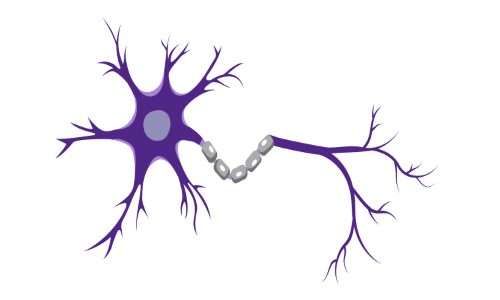
Neuropsychotherapy for Clinicians
Instructor: Jennifer Sweeton, PsyD, MS, MA
Bring the latest findings from neuroscience into your treatments. Learn interventions to literally alter the brain’s neurons, structures, pathways, and networks.
Media Type : 
CEs: 6 CE Credit(s)

Neuroscience Implications and Intensive Treatment for Complex Trauma
Instructor: Jennifer Sweeton, PsyD, MS, MA
We'll cover the neuroscience of trauma and complex trauma, diagnosis and assessment, stabilization techniques, and evidence-based treatments for complex trauma. Learn strategies and interventions from EMDR, CBT, somatic approaches, and narrative therapy.
Media Type : 
CEs: 11.75 CE Credit(s)

Neuroscience of Addiction
Instructor: Jennifer Sweeton, PsyD, MS, MA
This course discusses the main areas of the brain involved in addiction, the reward circuit, and neurochemicals involved in reward, motivation, and addiction. Brain-informed clinical implications and practical techniques will also be introduced.
Media Type : 
CEs: 3 CE Credit(s)

Neuroscience of Complex Trauma – Treatment Tools
Instructor: Jennifer Sweeton, PsyD, MS, MA
Learn about the neural bases of childhood (developmental/complex) trauma and the sequelae of such trauma. Course provides roadmaps for treating complex trauma in both adult survivors of childhood trauma and traumatized children.
Media Type : 
CEs: 5 CE Credit(s)

Neuroscience of God and Faith: It’s Not Just in Your Head
Instructor: Jennifer Sweeton, PsyD, MS, MA
This seminar teaches attendees the neural bases of God and faith, and cites neuroimaging evidence from neurotheology suggesting that our capacity to connect to a higher power is both wired in the brain, and at the same time not "just in our heads."
Media Type : 
CEs: 2.5 CE Credit(s)

Neuroscience of Grounding Techniques
Instructor: Jennifer Sweeton, PsyD, MS, MA
This video course provides mental health professionals with information about the neuroscience behind, and various uses for grounding techniques.
Media Type : 
CEs: 1 CE Credit(s)

Perinatal Mental Health Disorders: Early Identification & Treatment Tools
Instructor: Stephanie Risinger, MS, LCMFT
Perinatal mental health disorders have historically been dismissed as "baby blues," but 1 in 5 women now experience significant symptoms of depression and/or anxiety during pregnancy or postpartum. There are unique risk factors, symptoms, and treatments not taught in graduate school mental health programs and not specifically listed in the DSM-5-TR. Learn helpful diagnosis and treatment techniques for this vulnerable and overlooked population!
Media Type : 
CEs: 2.5 CE Credit(s)

Personality and Dissociative Disorders: Trauma, Coping and Repair
Instructor: Robert Cox, LPC
This workshop will explore the link between trauma, dissociation and both dissociative and personality disorders. We will discuss how the brain is changed by trauma and how dissociative and personality disorders develop through attachment and attunement disruptions early in life.
Media Type : 
CEs: 4.5 CE Credit(s)

Personality Disorder Treatment Toolkit: From Domination to Collaboration
Instructor: Jeff Riggenbach, Ph.D.
People with strong personality disorder traits often don't present to therapy specifically for PD treatment, but it is not uncommon to see them in therapy for various other presenting concerns (most often driven by underlying PD traits). So, undoubtedly you will see a handful of these clients in your practice, no matter the population you treat or setting you practice in, which makes a certain set of PD treatment skills that much more valuable for any therapist who wishes to find successful outcomes in the most challenging of clinical circumstances.
Media Type : 
CEs: 5.75 CE Credit(s)

Protect Your Practice! – Ethically Comply With New Good Faith Estimate Requirement
Instructor: Jodi Ann Geis-Crowder, MS, LPC, ACS
Protect your practice, avoid negative ethical and legal exposure. Learn your GFE requirement under federal law. Get usable templates to keep you safe and your clients informed!
Media Type : 
CEs: 1.25 CE Credit(s)

Relationship Therapy Toolbox: Popular Empirical Skills to Transform Partnerships
Instructor: Corey Petersen, PhD, LCMFT
Clinical research in the area of relationships and couples therapy has come a long way in the last 50 years, with findings galore, absolutely ripe for integration into work with dyads and individuals alike. But little has been done to synthesize these findings and compile them into a helpful "toolbox" of techniques we can use to leverage these findings in our relationships work. Join Dr. Corey Petersen as she bridges this gap, relevant for those who treat both couples and individuals with relationship issues.
Media Type : 
CEs: 10 CE Credit(s)

Resilience and Post-Traumatic Growth: Healing from Loss and Trauma
Instructor: Linda Graham, MFT
You'll learn the basics of harnessing the brain’s neuroplasticity to help clients learn more flexible and adaptive coping strategies and rewire negative coping patterns. Learn the techniques that reverse the impacts of stress and trauma, shift the brain out of reactivity, contraction, dissociation into more receptivity and openness to learning.
Media Type : 
CEs: 4 CE Credit(s)

Sadistic Homicide Offenders: Profiles, Patterns, & Prevention
Instructor: Jerrod Brown, PhD, MA, MS, MS, MS
What motivates people to kill? Go in-depth with Dr. Jerrod Brown as he explores Sadistic Homicide Offenders, or those who are driven to maim, torture, and ultimately kill for their own insatiable (and often sexually-motivated) pleasure. Learn patterns, profiles, & interventions, with the goal of early prevention.
Media Type : 
CEs: 2.5 CE Credit(s)

Schema-Focused CBT: Rooting Out Resistant Behavior Patterns
Instructor: Jeff Riggenbach, Ph.D.
Join best-selling CBT author and trainer Dr. Jeff Riggenbach as he teaches a refreshing hybrid between dynamic, insight-oriented approaches and evidence-based cognitive behavioral therapy, incorporating attachment theory, psychodynamic concepts, and emotion-focused techniques to help your most resistant clients!
Media Type : 
CEs: 5.75 CE Credit(s)

See My Color: Why Racial Colorblindness is Unethical
Instructor: Crystal Rozelle–Bennett, LMSW
Learn the concept of racial colorblindness and how its deleterious effects perpetuate racism, oppression, and discrimination. We'll discuss the ethical implications of this common racial microaggression in the practice of mental health.
Media Type : 
CEs: 3 CE Credit(s)

Self-Regulation Skills for Kids & Teens to Reduce Trauma, Anxiety, & More
Instructor: Christopher Willard, Psy.D.
Therapeutically restoring a young person's ability to self-regulate can be a challenging, yet extremely important undertaking. Learn from Harvard faculty member, author, speaker, and psychologist Dr. Chris Willard as he teaches you tools to help kids and teens better manage anxiety, depression, ADHD, & more.
Media Type : 
CEs: 3.5 CE Credit(s)

Self-Regulation: Strategies & Interventions for Children
Instructor: Katrina Jones, MS, LCMFT, RPT
This seminar covers neurobiological processes involved in the development of self-regulation, teaches clinicians how to communicate brain processes involved in self regulation, and discusses 15 interventions to promote healthy self-regulation in children.
Media Type : 
CEs: 5.75 CE Credit(s)

Sensorimotor Therapy Techniques for Trauma Treatment: Practical Skills*
Instructor: Jennifer Sweeton, PsyD, MS, MA
Research is increasingly showing the importance of working with the body when treating trauma. Many evidence-based therapies de-emphasize somatic work, focusing instead on cognitive techniques. When clients can re-connect with their own bodies, a sense of safety is restored, making the traditional top-down approaches more effective.
Media Type : 
CEs: 5.5 CE Credit(s)

Serial Killing: Patterns, Profiles, & Prevention – A Neurocriminological Perspective
Instructor: Jerrod Brown, PhD, MA, MS, MS, MS
Join Dr. Jerrod Brown as he takes you on a scientifically-informed clinical journey into serial killing. Learn patterns, profiles, and intervention strategies toward a comprehensive understanding of why people kill (and kill repeatedly), and how we might take a proactive clinical role toward prevention.
Media Type : 
CEs: 2.75 CE Credit(s)

Sexual Addictive Disorders: Treatment Tools to Build Emotional Sobriety
Instructor: Megan Salar, MSW, ACADC
It is estimated that 12-30 million Americans suffer with a sexual addictive disorder - an extremely taboo and overlooked negative coping behavior that can destroy mental health and relationships. Learn to clinically address this growing concern by deploying evidence-informed techniques to provide stabilization, enduring behavior change, and transformative emotional sobriety.
Media Type : 
CEs: 5 CE Credit(s)

Single Session Therapy in Action: Practical Strategies and a Recorded Demonstration!
Instructor: Windy Dryden, PhD, ScD
SST is a very direct and solution-oriented way to approach mental health therapy. It provides value and resolution for the client within a single session. Why is this a good thing? Some clients are busy or resistant to therapy (for cultural or other reasons), and may not seek therapy if they think about coming for many sessions in a row. This means we have a unique opportunity to extend services to a deserving but hard-to-reach population.
Media Type : 
CEs: 2.5 CE Credit(s)

Sleep Disturbances & Disorders: Implications for Mental Health Treatment
Instructor: Jerrod Brown, PhD, MA, MS, MS, MS
Obtain a working understanding of the causes, consequences, and interventions associated with sleep disturbances and disorders among client-based populations. Special emphasis on implications for screening, intake, and treatment and discharge planning.
Media Type : 
CEs: 1.25 CE Credit(s)

Solution-Focused Brief Therapy Skills for Trauma Treatment
Instructor: Jodi Ann Geis-Crowder, MS, LPC, ACS
Learn evidence-informed solution-focused brief therapy tools and techniques that can be used with clients who have experienced trauma. Help clients effectively develop and consistently deploy healthy coping mechanisms when trauma triggers reoccur.
Media Type : 
CEs: 2.5 CE Credit(s)

Solution-Focused Brief Therapy: Skills to Bolster Family Therapy Outcomes
Instructor: Jodi Ann Geis-Crowder, MS, LPC, ACS
Learn targeted SFBT techniques to move families out of problem-focused dysfunction and into healthier dynamics grounded in supportive and solution-focused communication patterns. Learn to foster therapy interactions that help family members move toward healing.
Media Type : 
CEs: 2.5 CE Credit(s)

Solution-Focused Therapy Skills for Depression & Other Mood Disorders
Instructor: Jodi Ann Geis-Crowder, MS, LPC, ACS
Depression doesn't get nearly the attention that anxiety does, yet its co-occurrence with anxiety make it extremely important that all clinicians be proficient in its treatment, even if it's not the "population you treat." The COVID-Depression link is now well documented in over half of COVID-19 survivors. Learn to tackle depression with classic SFBT skills for client-driven engagement and recovery!
Media Type : 
CEs: 2.5 CE Credit(s)

Suicide and Parasuicide in BPD: Evidence-Based Strategies
Instructor: Jeff Riggenbach, Ph.D.
Dr. Jeff Riggenbach explores suicide and parasuicide in the diagnosis and treatment of BPD. Learn associated clinical components, common client schemas, differential diagnoses, and actionable assessment an treatment strategies for these extreme, difficult-to-treat BPD behaviors.
Media Type : 
CEs: 2.5 CE Credit(s)

Suicide Assessment and Documentation: Using the L-RAMP
Instructor: Ashley Garrison, LCSW
Suicide assessment and documentation are critical, but sometimes it's not clear how to do these tasks well. Attend this hands-on workshop to learn the practical application of Linehan Risk Assessment and Management Protocol (L-RAMP).
Media Type : 
CEs: 2 CE Credit(s)

Suicide Prevention: Safety Planning as Treatment Planning
Instructor: Nathan Croy, MA, LCMFT
This presentation will teach practitioners how to create meaningful suicide treatment/safety plans that will increase insight and autonomy in individuals and families.
Media Type : 
CEs: 2 CE Credit(s)

Techniques For Responding to Highly Resistant Clients
Instructor: Clifton Mitchell, Ph.D.
Learn a broad array of techniques clinicians can add to their repertoire to improve client outcomes and reduce the stress and burnout that accompanies their most frustrating client-therapist interactions. Includes new, cutting-edge research on the use of priming in the therapeutic dialogue.
Media Type : 
CEs: 4 CE Credit(s)

The Happiness Toolbox – Brain-Based Skills for Lasting Well-Being
Instructor: Jonah Paquette, PsyD
This is an experiential workshop focused on the science of well-being and the ingredients of a meaningful life. Weaving modern advances in neuroscience with strategies for lasting well-being, this workshop will provide you with the necessary skills to transform your clinical work.
Media Type : 
CEs: 6 CE Credit(s)

Trauma Assessment and Treatment Planning: Ethical Considerations
Instructor: Jennifer Sweeton, PsyD, MS, MA
An overview of ethical considerations associated with the assessment and treatment of trauma and stressor-related disorders in adults. We'll cover multiple trauma-focused assessment tools and strategies, diagnostic considerations, and treatment planning for traumatized clients.
Media Type : 
CEs: 3 CE Credit(s)

Trauma Exposure and Sleep Disturbances
Instructor: Jerrod Brown, PhD, MA, MS, MS, MS
We'll provide attendees with a working understanding of the definitions, causes, and consequences of trauma and its impact on sleep health. We'll expand into executive and adaptive functioning, ACE's, attachment, substance use disorders, and mental illness.
Media Type : 
CEs: 1.25 CE Credit(s)

Trauma in the Family: Concrete Skills to Achieve Long-term Healing & Stability
Instructor: Nathan Croy, MA, LCMFT
Trauma is pervasive, and it can even jeopardize the health and function of an entire family. How do we treat this situation, where do we start?!! This course offers concrete strategies, comprehensive plans, insights, and treatment approaches to help you move families forward with results.
Media Type : 
CEs: 11.25 CE Credit(s)

Trauma Recovery After Loss Post-COVID: Skills for Diagnosis & Treatment
Instructor: Jennifer Sweeton, PsyD, MS, MA
In partnership with the Grief Support Network, Dr. Jennifer Sweeton explains how neuroscience can be used to help clients recover from devastating traumatic grief. She'll share evidence-informed techniques rooted in brain science that can be used to help your clients thrive after loss.
Media Type : 
CEs: 5.5 CE Credit(s)

Trauma Treatment and Teletherapy: Ethical Considerations and Tools
Instructor: Jennifer Sweeton, PsyD, MS, MA
Learn more about ways to ethically help clients recover from trauma while staying home. Keep the therapeutic alliance strong via video teleconferencing and help clients implement go-to, brain-healing techniques on a busy schedule.
Media Type : 
CEs: 3 CE Credit(s)

Trauma Treatment Skills for Survivors of Domestic Abuse and Intimate Partner Violence
Instructor: Christiane Sanderson, BSc., MSc.
Join internationally known British trauma psychologist, trainer, BBC TV consultant, and author Christiane Sanderson for a deep dive into her Power Threat Meaning Framework and Trauma Informed Practice. Learn modern research informed best practice for treating survivors of domestic abuse and intimate partner violence.
Media Type : 
CEs: 5.25 CE Credit(s)

Trauma Treatment Without Retraumatization: Ethical Considerations
Instructor: Jennifer Sweeton, PsyD, MS, MA
Learn trauma techniques that "do no harm" and promote stabilization and healing, even when processing the heaviest of traumas. Easily integrate these techniques into the therapy modalities you're already using!
Media Type : 
CEs: 3 CE Credit(s)

Treating Clients With a History of Abusive Relationships
Instructor: Leo DeBroeck, MS, LMHC, CMHS, MHP
Identify negative behavior patterns that often contribute to a client experiencing abusive relationships. Learn how co-dependency develops and how to recognize dependent traits. Learn treatment tools and techniques, diagnosis, transference issues, and current research on the topic.
Media Type : 
CEs: 5.5 CE Credit(s)

Treating Complex Trauma With Internal Family Systems: Evidence-Based Tools
Instructor: Frank Anderson, MD
Join Harvard psychiatrist, trauma expert, and leading IFS trainer Dr. Frank Anderson as he teaches using "parts" to help your trauma clients heal organically using their natural strengths and protective factors. Full-day workshop includes experiential training to put IFS theory into effective practice!
Media Type : 
CEs: 5.75 CE Credit(s)

Treating Grief-Stricken Clients: Culturally Sensitive Interventions
Instructor: Tiffani Dilworth, LCPC, CGCS
Not just another grief seminar! Popular grief expert and counselor Tiffani Dilworth explores culture's impact on the grieving process, grief across the lifespan, conceptualizing grief, powerful grief interventions, and tools to help clients live with tremendous enduring loss.
Media Type : 
CEs: 5.75 CE Credit(s)

Treating Insomnia Using Cognitive Behavioral Therapy (CBTi) Step-by-Step
Instructor: Jessica Bergstrom, Psy.D.
We'll provide attendees a comprehensive evidence-based CBT approach - proven effective in treating insomnia - that clinicians can easily integrate into their clinical practice. Learn step-by-step therapeutic techniques that can be utilized with clients immediately.
Media Type : 
CEs: 8 CE Credit(s)

Treating OCD in the Neurodiverse Client: ERP Adaptations for Autism
Instructor: April Kilduff, MA, LCPC, LPCC, LMHC
Did you know 37% of Autistics also have OCD? Most of us will treat an Autistic or neurodiverse client at some point, so it's important to learn how Autism presents, and how Autism and OCD co-occur. This engaging Autistic voice-led training will share real case examples and helpful applied ERP modifications for neurodiverse people with obsessions and compulsions.
Media Type : 
CEs: 2.25 CE Credit(s)

Treating Trauma Using Somatic Experiencing
Instructor: Tonya Miles, PsyD
Somatic Experiencing, created by Peter Levine, is a method of treatment for trauma symptoms to develop nervous system regulation. The focus is on the mind-body connection and incorporates the physical (somatic) sensations and experiences to process and integrate trauma.
Media Type : 
CEs: 2.75 CE Credit(s)

Treatment of ADHD in Children and Adolescents
Instructor: Tish Taylor, PhD
Gain both broad and detailed information about ADHD in young people, how it presents, and specific strategies for treatment and intervention. We'll also explore how current lifestyles are impacting ADHD presentation and its treatment.
Media Type : 
CEs: 5.25 CE Credit(s)

When Trauma is Current: Treating Clients with Ongoing Traumatic Stressors
Instructor: Jennifer Sweeton, PsyD, MS, MA
When most of us think of trauma treatment, we think of our clients who've suffered a difficult childhood or event that occurred in the past - but what about trauma happening right now? Learn to deploy the best techniques to treat ongoing trauma: racism, sexism, systemic inequalities, current events, etc.
Media Type : 
CEs: 2.5 CE Credit(s)

Why Race Matters: Understanding Racial Identity and Racial Trauma
Instructor: Lea Vincent, MA, PLPC, NCC
We'll cover the dynamics of racial identity for African Americans and white Americans, as well as dissect how racial trauma has impacted that formation. Such subjects as discrimination and implicit bias will be explored along with suggestions on how to utilize this information in practice.
Media Type : 
CEs: 2.5 CE Credit(s)

Working With Post-Trauma Guilt and Moral Injury
Instructor: Jennifer Sweeton, PsyD, MS, MA
Overwhelming feelings of self-blame and shame present some of the toughest treatment challenges working with trauma survivors. Learn nine steps for addressing, managing, and reducing moral injury, which can occur when clients believe that a trauma was a result of their own actions.
Media Type : 
CEs: 1.5 CE Credit(s)

Worry, Panic, & Phobia: Evidence-Based Approaches to Alleviate Anxiety
Instructor: Jennifer Abel, PhD
This lively and engaging seminar by Dr. Jennifer Abel teaches evidence-based approaches to help your clients worry and stress less. Learn the nature of panic attacks, worry, and anxiety. Learn treatment approaches proven to help alleviate GAD, panic disorder, and specific phobia.
Media Type : 
CEs: 5.75 CE Credit(s)

Writing Letters for Support Animals Confidently: Dispelling Myths & Misconceptions
Instructor: Jessie L. Rayl, Ed.D., LPC
Many therapists decline to write therapy animal letters for fear of legal liability, but our ethics demand this important advocacy. Join Dr. Jessie L. Rayl, who is a person with a deaf-blind disability, as she discusses how to confidently and safely advocate for your clients who may benefit from a service or support animal!
Media Type : 
CEs: 1.5 CE Credit(s)

Written Exposure Therapy: Evidence-Based Tools for Trauma & PTSD
Instructor: Jennifer Sweeton, PsyD, MS, MA
Not many people know that Written Exposure Therapy (WET) is an evidence-based brief trauma approach that was recently declared a first-line PTSD therapy in the VA/DoD Clinical Practice Guidelines. Extra useful for both online therapy and in-person therapy, take away tools to induce exposure in a novel and controlled fashion your clients can get behind!
Media Type : 
CEs: 5.75 CE Credit(s)
Book A CEU Course Today!
Save on all your training today with one flat-monthly fee for both on-demand and live event/webinar CE trainings, plus all targeted certification programs!

